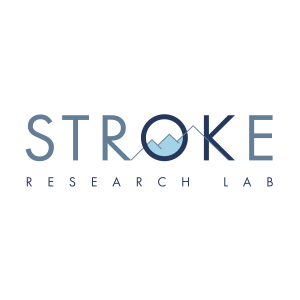Jump to:


strOKe Lab Research
TeleRehabilitation with Aims to Improve Lower Extremity Recovery Post-Stroke (TRAIL-RCT): A Randomized Controlled Trial

TRAIL is a 4-week progressive exercise and self-management program aimed to help with functional mobility after stroke.
The objectives of this randomized controlled trial are to:
- Examine the effect of TRAIL on functional mobility and recovery among people within 12-months post-stroke
- Determine the effects of TRAIL on health resource use and quality of life.
Developing and assessing a novel Delivery for Virtual Rehabilitation to improve Mobility after Stroke – A Rehabilitation Mirror (TRAIL-M)
TRAIL-M is looking at the delivery of virtual rehabilitation using a ‘smart mirror’.
The objectives of this research are to:
- Investigate the feasibility of delivering rehabilitatin using a smart mirror.
- Explore perspectives on videoconferencing and computers used for virtual rehabilitation among people who have had a stroke and therapists.
- Learn about unmet needs in the delivery of an existing lower extremity program and potential solutions to address problems of i. Technology Set-Up, ii. Patients, iii. Clinicians.
- Evaluate the user experience of the smart mirror.
Exploring the natural history of chronic disease self-management and health resource utilization after stroke (ENHANCE)
The objectives of this natural history of chronic disease self-management and health resource utilization study are to:
- Develop a thorough understanding of chronic disease self-management among stroke survivors beginning at the time of discharge from hospital.
- Explore trajectories in salient self-management domains (i.e., behavioural, emotional, participation in life roles) over 12-months.
- Explore the moderating role of sociodemographic (i.e., biological sex and age) and health (i.e., stroke severity, number of comorbidities) variables on trajectories of chronic disease self-management ability and domains over 12-months of follow-up.
- Identify ‘case-mixes’ of participants that have different cost and health related quality of life trajectories (i.e., stable, declining, increasing).
- Identify modifiable baseline predictors (self-management domains: walking behaviours, depression status, participation in life roles) based on participants’ case-mix cost and health related quality of life trajectories.
Association Between Diet Quality and Metabolic Syndrome (MetS) Among People Who Have Had a Stroke
The objectives of this study are to:
- Quantify the association between overall diet quality and MetS diagnosis among people who have had a stroke.
- Identify sociodemographic and health-related variables that predict overall diet quality.

Virtual Interprofessional Collaborative Care Student-Run Intervention for people with Transient Ischemic Attack (TIA)
This program is a student-led chronic disease management and prevision program for people with TIA that aims to utilize health coaching, education, and exercise to facilitate management of TIA symptoms and prevention of stroke.
The objectives of this study are to:
- To promote chronic disease self-management after a Transient Ischemic Attack (TIA).
- Evaluate the feasibility of a virtual 8-week Student-delivered TIA Management and Prevention program, a comprehensive ICC student-run intervention to promote chronic disease self-management after TIA.
- Estimate the TMP effect size on the primary outcome of self-management ability, and secondary outcomes in key self-management domains, including: medical/behavioural, emotional, and life roles.
Power Exercise for Stroke Recovery: A Pilot Randomized Controlled Trial (POWER-Pilot)
The objectives of this POWER-Pilot study are to:
- Build muscle power through a combination of speed and strength
- Investigate two 10-week programs, POWER and STRENGTH.
- Evaluate the feasibility of comparing two programs for a stroke survivor population.

Training Initiatives
STROKECOG Platform: News Approaches to Clinical Trials Training for STROKE and COGnition

STROKECOG is an equity, diversity, inclusivity and accessibility (EDIA) centred training platform that will redefine how stroke clinical trail expertise is developed in Canada.
The objectives are to:
- Enhance the design of clinical trails to include equity, diversity, inclusion, and accessibility considerations.
- Provide a new generation of more diverse researchers with training to conduct inclusive complex trials in diverse populations, across a wider range of care settings.
CREATE Immersive Technologies (CITech)
CITech is a research and training platform focused on skill development and collaborative research to design immersive hardwire and software solutions for various applications, from manufacturing to healthcare, to community engagement.
The objectives for the CITech are to:
- Test newly developed courses on deign of immersive systems and their applications in health, manufacturing, maintenance, education, etc.
- Test skills development workshops on topics ranging from introduction to immersive tools, entrepreneurship, effective interdisciplinary research, and data analysis.
- Bring together trainees with a network of industry associates, in addition to participating at international conferences.

What is CanStroke?
“CanStroke Recovery Trials is the world’s first clinical trial platform dedicated exclusively to stroke recovery. CanStroke has the infrastructure to quickly and efficiently run stroke recovery trials across Canada. It’s the launching pad to test and evaluate innovative therapies, interventions and devices.
This multidisciplinary platform brings together research leaders with backgrounds in psychiatry, neurology, neuropsychology, physical therapy, occupational therapy, clinical epidemiology and neuroscience to lead large-scale, multi-site clinical trials to advance discovery and transform care.”
Virtual Physical Activity Seated Exercise Study (V-PASE)

V-PASE is a 10-week seated exercise program that focuses on Progression, Repetition, Intensity, and Encouragement.
The objectives for V-PASE are to:
- Investigate the effects of a 10-week seated exercise program delivered via video conferencing on improving lower extremity muscle strength in those people with stroke related mobility impairment.
The Canadian Maraviroc Randomized Controlled Trial To Augment Rehabilitation Outcomes After Stroke (CAMAROS)
In this Health Canada regulated trial, the primary objective is to:
- Examine the effect of Maraviroc and exercise on upper and lower extremity recovery after a stroke.
If you are interested in participating in our current or future studies, please email us at ok.strokeresearch@ubc.ca or give us a call at (250)-807-8222.








